Mesotherapy in France
Search and Compare the Best Clinics and Doctors at the Lowest Prices for Mesotherapy in France

Find the best clinics for Mesotherapy in France
No pricing info available
Ukraine offers the best prices Worldwide
Price: $ 20
From 79 verified reviews
Melissa Mason, 23 September 2020
Très satisfaite par mon intervention ! Le résultat est top et encore mieux que ce que j'imaginais. Le Docteur montoneri m'a mis à l'aise dès le premier rendez-vous et a été aux petits soins du début à la fin du suivi postopératoire du mon lifting. L'accompagnement est irréprochable et appréciable.
From 16 verified reviews
B AM, 10 March 2020
Great !!!! Efficient and attentive. What more ???
Centre Medical Et Esthetique Auber, located in Avenue Franklin Delano Roosevelt, Paris, France offers patients Mesotherapy procedures among its total of 23 available procedures, across 5 different specialties. Currently, there's no pricing information for Mesotherapy procedures at Centre Medical Et Esthetique Auber, as all prices are available on request only. All procedures and treatments are undertaken by just a small team of specialists, with 3 in total at the Hospital, and they are not accredited by any recognized accreditations institutes
- Home
- France
Compare Before & After Photos of _procedure_photos.phpMesotherapy
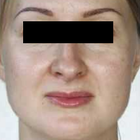
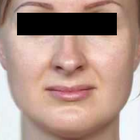
Front view
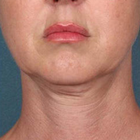
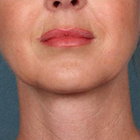
Front view
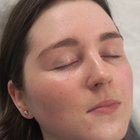
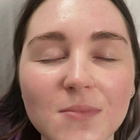
Front view
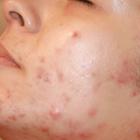
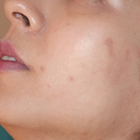
Half-side view
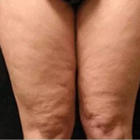
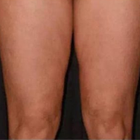
Front view
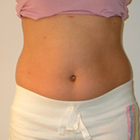
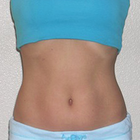
Front view
WHY US?
At Medijump, we're making medical easy. You can search, compare, discuss, and book your medical all in one place. We open the door to the best medical providers worldwide, saving you time and energy along the way, and it's all for FREE, no hidden fees, and no price markups guaranteed. So what are you waiting for?

Free

Best Price

Widest Selection

Risk-Free
What you need to know about Mesotherapy in France
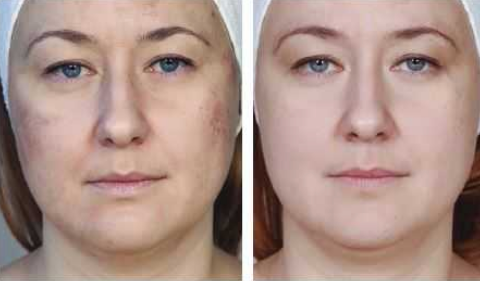
Mesotherapy is a nonsurgical technique that uses micro-injections of vitamins, hormones, enzymes, and plant extracts. Its goal is to rejuvenate and tighten the skin. It is also used to reduce cellulite, lighten pigmented skin, fade wrinkles and line, treat alopecia and encourage hair growth, recontour the body, as well as to remove fat in areas such as the thighs, stomach, buttocks, legs, hips, face, and arms.
Very fine needles are used to deliver a series of injections into the middle layer of the skin. These injections are believed to correct underlying issues, such as inflammation and poor circulation, which cause skin damage.
Before mesotherapy, you may have problems like stubborn fat in certain areas of the body, wrinkles and fine lines in the face, pigmented skin, etc. After the procedure, you’re dull and tired-looking skin will be improved, superficial wrinkles will fade, and excess fat will be reduced. If you undergo the procedure to treat alopecia, you can also expect the procedure to promote hair growth.
What does a Mesotherapy Procedure Involve?
While mesotherapy is nonsurgical and not painful, it can be slightly uncomfortable. Therefore, you may have anesthetic cream applied to your skin to numb the affected area.
Using a special short needle, you will get a series of injections. The injections can be carried out on the face, neck, scalp, chest, hands, and other areas of the body that may have problems you wish to address. There is not a standard formula for the substances injected. The practitioner may use a combination of different substances, including vitamins and minerals, enzymes (such as hyaluronidase and collagenase), herbal extracts, hormones (such as thyroxin and calcitonin), as well as prescription medicines (such as antibiotics and vasodilators). The substances used depends on what you want to treat. For instance, the treatment for cellulite and body fat reduction may use lecithin and isoproterenol.
Each injection can be given at different depths into your skin, ranging between 1 and 4 millimeters, depending on the condition you want to treat. The practitioner may flick their wrist at a rapid pace while injecting, or place the needle into your skin at an angle.
How Long Should I Stay in France for a Mesotherapy Procedure?
Mesotherapy is an outpatient procedure, so you can leave the hospital on the same day. You should be able to leave France right away, but it is recommended to wait at least a day before you travel home because you need to wait for the substances to settle down. However, since you may need a series of treatment to get the desired results, you should expect to return to the clinic or hospital between 3 to 15 times, with 7 to 14 days intervals. Therefore, the length of stay depends on how many sessions you will need until you achieve the result you wish for.
What's the Recovery Time for Mesotherapy Procedures in France?
Mesotherapy has minimal downtime. You may experience a little bruising and swelling after the procedure, but they will subside within 24 hours. Some people are able to return to work and your normal activities on the same day, while others may need to take a day off due to pain and swelling.
What sort of Aftercare is Required for Mesotherapy Procedures in France?
No special aftercare is needed, but the practitioner may give you instructions to follow, which may include what you should do to avoid complications and to reduce swelling and bruising. You can have maintenance treatments 1 – 2 times a year.
To maintain the results, particularly if you have mesotherapy to reduce signs of aging and eliminate excess fat, make sure you exercise regularly, follow a well-balanced diet plan, and limit your alcohol intake.
What's the Success Rate of Mesotherapy Procedures in France?
While there is proof showing that there can be some improvement after mesotherapy, more studies and research are needed to verify the mechanism, safety, and effectiveness of the procedure. Therefore, you should always choose a licensed practitioner with proven track records and experience if you do want to try the procedure.
According to those who practice mesotherapy, the risks tend to be minimal if you go to an experienced and trained practitioner. The side effects and risks of mesotherapy may include pain, nausea, sensitivity, bumps, swelling, bruising, itching, dark patches of the skin, redness, rash, scars, and infection.
Are there Alternatives to Mesotherapy Procedures in France?
The alternative to mesotherapy depends on the condition you want to treat, which may include:
- Injection lipolysis – mesotherapy and injection lipolysis are often thought to be the same procedure, but they are actually two different procedures. Injection lipolysis involves the injection of deoxycholate and phosphatidylcholine into the fat layer under the skin to break up fat.
- Liposuction – is one of the most popular cosmetic treatments to remove excess fat. It uses a suction technique to eliminate fat from specific areas of the body.
- Botox and dermal fillers – both Botox and dermal fillers are nonsurgical treatments to rejuvenate the skin. Botox works by blocking nerve contraction to relax wrinkles, while dermal fillers can improve skin contouring.
Whilst the information presented here has been accurately sourced and verified by a medical professional for its accuracy, it is still advised to consult with your doctor before pursuing a medical treatment at one of the listed medical providers
No Time?
Tell us what you're looking for and we'll reachout to the top clinics all at once
Enquire Now

Popular Procedures in France
Prices Start From $85

Prices Start From $167

Prices Start From $120

Prices Start From $931

Prices Start From $76

Prices Start From $5

Prices Start From $236

Recommended Medical Centers in France for Mesotherapy

- Interpreter services
- Translation service
- Religious facilities
- Medical records transfer
- Medical travel insurance
- Health insurance coordination
- TV in the room
- Safe in the room
- Phone in the room
- Private rooms for patients available

- Interpreter services
- Translation service
- Religious facilities
- Medical records transfer
- Medical travel insurance
- Health insurance coordination
- TV in the room
- Safe in the room
- Phone in the room
- Private rooms for patients available

- Interpreter services
- Translation service
- Religious facilities
- Medical records transfer
- Medical travel insurance
- Health insurance coordination
- TV in the room
- Safe in the room
- Phone in the room
- Private rooms for patients available

- Interpreter services
- Translation service
- Religious facilities
- Medical records transfer
- Medical travel insurance
- Health insurance coordination
- TV in the room
- Safe in the room
- Phone in the room
- Private rooms for patients available

- Interpreter services
- Translation service
- Religious facilities
- Medical records transfer
- Medical travel insurance
- Health insurance coordination
- TV in the room
- Safe in the room
- Phone in the room
- Private rooms for patients available

- Interpreter services
- Translation service
- Religious facilities
- Medical records transfer
- Medical travel insurance
- Health insurance coordination
- TV in the room
- Safe in the room
- Phone in the room
- Private rooms for patients available

- Interpreter services
- Translation service
- Religious facilities
- Medical records transfer
- Medical travel insurance
- Health insurance coordination
- TV in the room
- Safe in the room
- Phone in the room
- Private rooms for patients available

- Interpreter services
- Translation service
- Religious facilities
- Medical records transfer
- Medical travel insurance
- Health insurance coordination
- TV in the room
- Safe in the room
- Phone in the room
- Private rooms for patients available

- Interpreter services
- Translation service
- Religious facilities
- Medical records transfer
- Medical travel insurance
- Health insurance coordination
- TV in the room
- Safe in the room
- Phone in the room
- Private rooms for patients available

- Interpreter services
- Translation service
- Religious facilities
- Medical records transfer
- Medical travel insurance
- Health insurance coordination
- TV in the room
- Safe in the room
- Phone in the room
- Private rooms for patients available
Mesotherapy in and around France
About France
France, renowned for its architecture, art, cinema, cuisine, fashion, literature, music, and wine, with the most significant attraction being its glorious capital city, Paris - home to the famous Eifel Tower. With its small medical tourism industry, France sees far fewer medical tourists than its neighbors Germany and Spain, however, many travel each year for Mesotherapy procedures among other popular procedures. Other than Paris, popular locations for private medical centers, include Bordeaux, Lyon, and Montpellier.
Popular Parts of France
France has welcomed more than 80 million visitors in the past few years. The country does have a lot to offer, from culture to iconic landscapes, making it an ideal place to spend a memorable holiday.
- Paris, the capital of France, is an international center of culture, fashion, art, and gastronomy. Hundreds of writers have written about their love of this city, and it is easy to see why. With thousands of years of history, the city is filled with iconic monuments. Some of the most famous and most visited landmarks are the Eiffel Tower, Arc de Triomphe, and Notre Dame. This stunning city is also known for its art nouveau cafes with pretty chairs lining the terrace and the beautiful banks of the Seine that are perfect for romantic walks.
- Bordeaux is known for its wine, lively restaurant scene, and the futuristic La Cité du Vin. Tourists can take a tour of a winery and taste some of the world’s best wines. Complete the wine tour by visiting La Cité du Vin, an ultra-modern cultural center that provides comprehensive information about wine production. Other than the wine, there are countless things that tourists can do in this city. Visit Place de la Victoire, a pretty square with amazing architecture, or visit Musée D’Aquitaine to see historical collections from all around the Aquitaine region.
- Lyon is the third-largest city in France and it is famous for its cuisine and historical landmarks. The city was an important area for silk production and had lots of trade with Italy and tourists can see the Italian influence in the city’s architecture. The city attracts travelers to come and visit its many museums such as the Museum of Fine Arts of Lyon, Museum of Miniatures, and Textile Museum. Tourists who love cinema will be delighted to explore the Lumiere Institute. Since Lyon is famous for its gastronomic scene, tourists should taste its famous specialties in a Bouchon.
- Nice is the second-largest tourist destination in France. Located on the Mediterranean coast, the city is brimming with stunning beaches, hilltop lookouts, and glamorous restaurants. Thanks to its Mediterranean climate, it is always filled with sun-seekers all year round. The city in the past also attracted many artists such as Henri Matisse, Marc Chagall, Pablo Picasso, and Pierre-Auguste Renoir. The city pays tribute to the artists in its top museums, the Musée Chagall and the Musée Matisse.
- Marseille is the second most populated city in France. Found by Greek sailors in 600 BC, it is one of the oldest cities in Europe. With a complex history, it is now a melting pot of different cultures. Discover the city by shopping in one of the colorful markets like the Noailles market. Do not forget to visit the Calanques to admire its beauty, wander around the interesting Mucem, get lost in Le Panier, and stroll around the scenic Corniche.
Weather and Climate in France
France generally enjoys mild summers and cold winters except in the Mediterranean area, which enjoys mild winters and hot summers. Spring starts in March and ends in April and the streets in spring are bursting with colors, making it a beautiful time to visit the country. It rains a lot during this season but the weather will start to brighten up in April. The temperature ranges between 7.5 °C in early March and 13.6 °C in May. June is when the summer starts and this season is a high season for tourism. The average temperature in summer is around 24 °C and the season experience little rainfall (around 11 days every month).
Autumn lasts from September to November. With an average of 12 °C, the temperature is still pretty mild to enjoy some outdoor activities. The temperature will slowly decrease in November when it reaches an average of 7.5 °C. Autumn is also the season of grape harvests, meaning it is a great time for wine tours. Winter is during the months of December to February and the weather can be really cold during this season with an average temperature of 5 °C. Despite the cold, December can be a delightful time to visit the country since it is one of the most festive months in France.
Getting Around in France
France has 34 airports, but the busiest are the airports in Paris: Paris Charles de Gaulle and Orly. Paris Charles de Gaulle Airport is the largest airport in France and the second largest in Europe. The airport serves domestic and international flights. It connects France with almost every country around the globe. It also serves budget airlines such as EasyJet and Norwegian Air Shuttle. While Charles de Gaulle airport serves as the main airport, Orly Airport serves as a secondary hub for domestic and overseas territories flights.
Traveling around France is easy. The wide range of airports let tourists travel around the country quickly by domestic flights. The country also has a great rail system since it is the creator of the earliest high-speed train system. The TGV (Train a Grande Vitesse) connects 150 cities in the country and Europe. It speeds up to 200 miles per hour. Other than the TGV, there are also Intercity trains, TER, and AutoTrain. The easiest way to buy train tickets is online. The prices vary widely but you will get good bargains if you book early. Before getting on the train, remember to validate your ticket in yellow machines known as compostage de billets.
Taxis can be found easily around France and you can hail a taxi from a taxi rank (station de taxi) outside railway stations, airports, or main areas in cities. You can also hail one directly from the street or by telephone. The taxis are metered and the base fare is around €4.10. If there are more than four passengers, there will be an extra fee of €2.50 and the driver can charge an extra €2 if you have a lot of luggage and Taxis are usually more expensive in Paris.
Tourist Visas in France
France is a member of the Schengen Agreement. Therefore, holders of ordinary passport from 62 countries including Australia, Malaysia, Singapore, and the United States do not need a visa to enter the country for short stays of up to 90 days. Other nationals not listed need to apply and obtain a visa before entering the country. It is advisable to always check at the nearest France embassy or consulate for a France visa.
Additional Information
- Local Currency: The official currency in France is the Euro (€). US$1 converts to €0.85.
- Money & Payments: ATMs (known as DAB - distributeurs automatiques de billets) are widely available in the country, particularly in airports, train stations, and street corners. Credit and debit cards are accepted almost everywhere, including shops, supermarkets, restaurants, and hotels. Tipping can sometimes be mandatory, usually around 10% in restaurants.
- Local Language: French is the official language. Most people in large cities will speak English, especially in hotels and tourist sites. But it is better to know some French.
- Local Culture and Religion: France has a diverse religion under secular principles. The major religion in the country is Christianity, but other religions such as Islam, Buddhism, and Judaism are freely practiced.
- Public Holidays: There are 11 official public holidays in France, including New Year’s Day, Easter Monday, Bastille Day, and Christmas Day.
Popular Searches
- Plastic Surgery in Thailand
- Dental Implants in Thailand
- Hair Transplant in Thailand
- Breast Augmentation Thailand
- Gastric Sleeve in Thailand
- Gender Reassignment Surgery in Thailand
- Laser Hair Removal in Bangkok
- Botox in Bangkok
- Dermatology in Bangkok
- Breast Augmentation in Bangkok
- Coolsculpting in Bangkok
- Veneers in Turkey
- Hair Transplant in Turkey
- Rhinoplasty in Turkey
- Stem Cell Therapy in Mexico
- Rhinoplasty in Mexico
- Liposuction in Mexico
- Coolsculpting in Tijuana
- Rhinoplasty in Korea
- Scar Removal in Korea
- Gastric Sleeve in Turkey
- Bone Marrow Transplant in India
- Invisalign in Malaysia
- Plastic Surgery in the Dominican Republic
- Tummy Tuck in the Dominican Republic
- Plastic and Cosmetic Surgery in Poland
- Rhinoplasty in Poland
- Hair Implant in Poland
- Dental Implants in Poland
- IVF in Turkey


